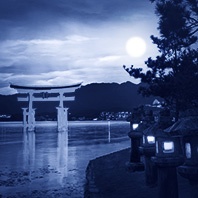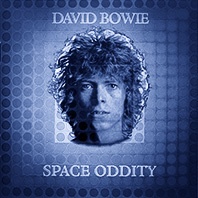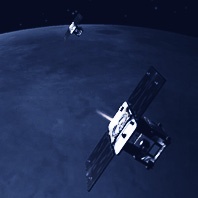Sir Charles Spencer Chaplin (1889–1977) is considered one of the first movie stars ever and made film history with his acting and his works. He is also one of the few artists who managed the transition from silent films to sound films.
Because of using archetypal imagery and symbols in his films, it is natural that the moon could also play a part somewhere. We found four references:
Read more
»The Lion King« from 1994, is one of the most successful animated movies, and just like in other works from the house of Walt Disney (»The Lady and the Tramp« and others), we are able to gaze at the full moon up in the sky in nightly scenes.
Particularly well-known is the image, where Simba dances across a tree trunk with his companions, which enables them to cross a large river in front of the backdrop of a gigantic full moon. This motif has also been used for various movie posters and can also be watched in the movie trailer:
Read more
Everyone knows that the sun is much larger than the moon and much further away from earth. In this very context lies a fascinating fact: both celestial bodies appear to be of similar size on the firmament, when observed from earth. Which implies that the sun has to be as many times bigger than the moon, as it is further away from the earth than the moon from the earth …
Read more
Japan has a custom, which is called “Tsukimi” or also “Otsukimi” that literally means “moon-viewing” (tsuki = jap. Moon). This tradition dates back to the Heian period (794–1192) where Japanese culture and the arts were refined to a high degree. At that time, elements of the Chinese “Mid-Autumn Moon Festival” were introduced in Japan, and festivals and rituals were held in the eighth sun month (which corresponds to September in our current calendar).
Read more
The song »Space Oddity« by the British musician David Bowie (1947–2016) made history. Bowie’s inspiration for this piece composed in 1968, was the science fiction classic »2001: A Space Odyssey« by Stanley Kubrick.
It tells the fictional story of the astronaut Major Tom, who leaves his spacecraft during a flight through space and says his farewell to the people. The last four lines of the lyrics also mention the Moon:
Read more
When observing the Moon, you can see dark spots on its surface. In the old days, these were thought to be the seas and oceans just like on Earth, so they were called »mare« (plural: »maria«). Giovanni Riccioli (1598–1671), an Italian priest and astronomer was leading in this area and was responsible for giving many lunar maria their Latin or partially poetic names. We would like to single out a few that we consider to be worthwhile mentioning.
Read more
The German poet and novelist Joseph Freiherr von Eichendorff (1788–1857) counts among the foremost representatives of Romanticism. Many of his poems had been set to music and were sung.
Von Eichendorff, born in Ratibor (today Racibórz in Poland), studied originally law and worked in a variety of administrative civil service positions, up until he retired. Simultaneously, he devoted his time to his writing and publishing skills, until he died from pneumonia in 1857.
Read more
We have already reported about the subject “Sleeping at the full moon” with the insight that the phenomenon of a restless or bad sleep around the full moon apparently exists for many people, however, we are groping in the dark if looking at the background. Generally, skeptics claim that insufficient sleep is connected to the fact that the people concerned are more or less aware of it being a full moon and therefore eventuate a self-fulfilled prophecy. Those affected, counter that they often find out afterwards whether it was the full moon or it had not occurred to them yet to make this connection at all.
Read more
In China, the September full moon is a special day. It is the day of the Moon Festival or Mid-Autumn Festival. This festival is traditionally celebrated on the 15th day of the eighth month of the old Chinese calendar. Because the moon month averages 29.5 days in length, the 15th day is usually a full moon day, however, there are slight shifts in some years. The Moon Festival is one of the most important festivals in China, but is also held in Korea and Vietnam as well as in the respective districts in big cities around the globe.
Read more
A probe is an unmanned flying object, which explores space. Different to a satellite, a probe does not circle the Earth but flies to other celestial bodies, which they circle, too, but are then called orbiters. Two of these probes have been on the way to the Moon since 10th September 2011, to take measurements with unprecedented accuracy. The GRAIL lunar probes have reached the orbit of the Moon as planned, at the turn of the year 2011/12 and are now currently at work, until they will shatter on the Moon’s surface. In the meantime, they will have transmitted lots of data back to Earth.
Read more
If you ask two lovers to which city they would like to travel to, to express their love, many will probably name two cities: Paris and Venice. While Paris embodies a variety of aspects of love, being the »city of love« (obviously also the erotic aspect), Venice stands especially for the romantic encounter between people. This must surely be the reason why so many weddings are celebrated and honeymoons are spent there.
Read more










